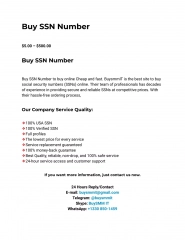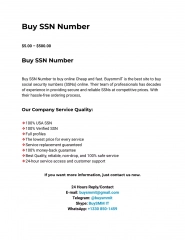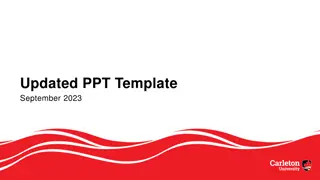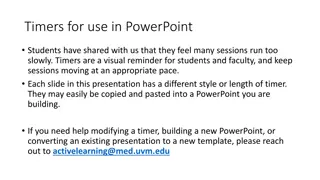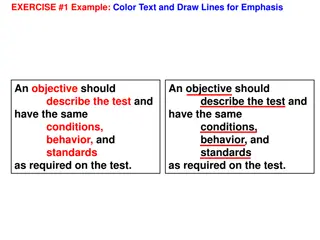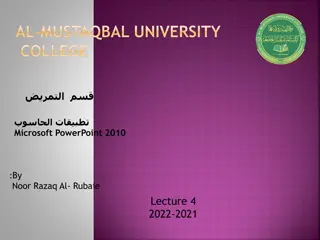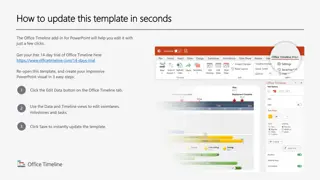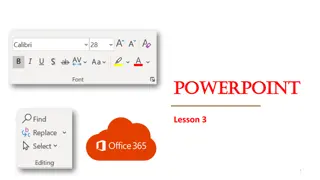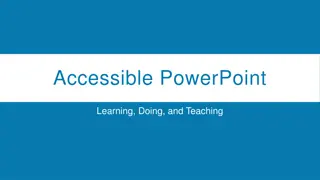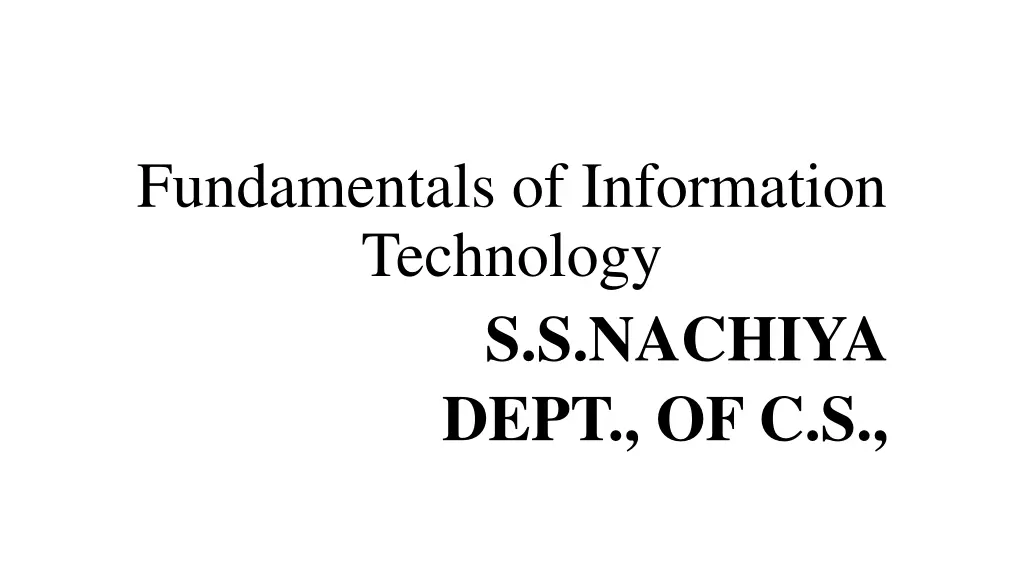
Operating System Functions and Management
Explore the fundamental functions and management roles of an operating system, acting as a crucial interface between users and computer hardware. Discover the significance of resource allocation, memory management, processor management, job accounting, error detection, and more in maintaining system efficiency and user experience.
Download Presentation

Please find below an Image/Link to download the presentation.
The content on the website is provided AS IS for your information and personal use only. It may not be sold, licensed, or shared on other websites without obtaining consent from the author. If you encounter any issues during the download, it is possible that the publisher has removed the file from their server.
You are allowed to download the files provided on this website for personal or commercial use, subject to the condition that they are used lawfully. All files are the property of their respective owners.
The content on the website is provided AS IS for your information and personal use only. It may not be sold, licensed, or shared on other websites without obtaining consent from the author.
E N D
Presentation Transcript
Fundamentals of Information Technology S.S.NACHIYA DEPT., OF C.S.,
Operating System Functions An Operating System acts as a communication bridge (interface) between the user and computer hardware. The purpose of an operating system is to provide a platform on which a user can execute programs in a convenient and efficient manner. The main task an operating system carries out is the allocation of resources and services, such as the allocation of memory, devices, processors, and information. The operating system also includes programs to manage these resources, such as a traffic controller, a scheduler, memory management module, I/O programs, and a file system. It controls all of computer resources. It provides valuable services to user programs. It coordinates the execution of user programs. It provides resources of user programs.
It provides an interface(virtual machine) to the user. It hides the complexity of software. It supports the multiple execution modes. It monitors the execution of user programs to prevent errors. Important functions of an operating System: 1.Security The operating system uses password protection to protect user data and similar other techniques. it also prevents unauthorized access to programs and user data. 2.Control over system performance Monitors overall system health to help improve performance. records the response time between service requests and system response to having a complete view of the system health. This can help improve performance by providing important information needed to troubleshoot problems.
3.Job accounting Operating system Keeps track of time and resources used by various tasks and users, this information can be used to track resource usage for a particular user or group of users. 4.Error detecting aids The operating system constantly monitors the system to detect errors and avoid the malfunctioning of a computer system. 5.Coordination between other software and users Operating systems also coordinate and assign interpreters, compilers, assemblers, and other software to the various users of the computer systems. 6.Memory Management The memory addresses that have already been allocated and the memory addresses of the memory that has not yet been used. In multiprogramming, the OS decides the order in which processes are granted access to memory, and for how long. It Allocates the memory to a process when the process requests it and deallocates the memory when the process has terminated or is performing an I/O operation.
7.Processor Management In a multi-programming environment, the OS decides the order in which processes have access to the processor, and how much processing time each process has. This function of OS is called process scheduling. An Operating System performs the following activities for processor management. Keeps track of the status of processes. The program which performs this task is known as a traffic controller. Allocates the CPU that is a processor to a process. De-allocates processor when a process is no more required. 8.Device Management An OS manages device communication via their respective drivers. It performs the following activities for device management. Keeps track of all devices connected to the system. designates a program responsible for every device known as the Input/Output controller. Decides which process gets access to a certain device and for how long. Allocates devices in an effective and efficient way. Deallocates devices when they are no longer required.
The Operating System provides certain services to the users which can be listed in the following manner: 1.Program Execution: The Operating System is responsible for the execution of all types of programs whether it be user programs or system programs. The Operating System utilizes various resources available for the efficient running of all types of functionalities. 2.Handling Input/Output Operations: The Operating System is responsible for handling all sorts of inputs, i.e, from the keyboard, mouse, desktop, etc. The Operating System does all interfacing in the most appropriate manner regarding all kinds of Inputs and Outputs. For example, there is a difference in the nature of all types of peripheral devices such as mice or keyboards, the Operating System is responsible for handling data between them. 3.Manipulation of File System: The Operating System is responsible for making decisions regarding the storage of all types of data or files, i.e, floppy disk/hard disk/pen drive, etc. The Operating System decides how the data should be manipulated and stored.
4.Error Detection and Handling: The Operating System is responsible for the detection of any type of error or bugs that can occur while any task. The well-secured OS sometimes also acts as a countermeasure for preventing any sort of breach to the Computer System from any external source and probably handling them. 5.Resource Allocation: The Operating System ensures the proper use of all the resources available by deciding which resource to be used by whom for how much time. All the decisions are taken by the Operating System. 6.Accounting: The Operating System tracks an account of all the functionalities taking place in the computer system at a time. All the details such as the types of errors that occurred are recorded by the Operating System. 7.Information and Resource Protection: The Operating System is responsible for using all the information and resources available on the machine in the most protected way. The Operating System must foil an attempt from any external resource to hamper any sort of data or information.

